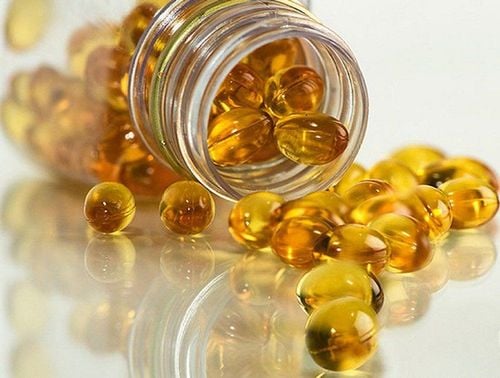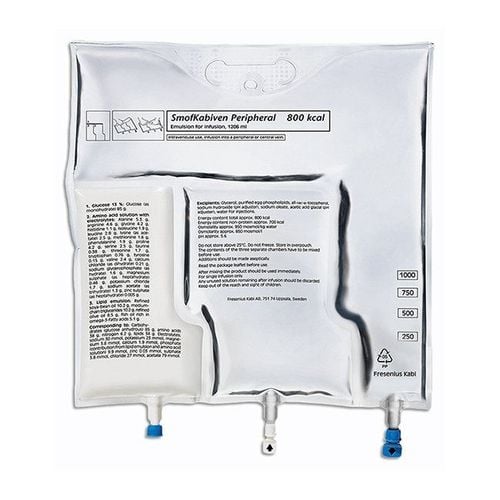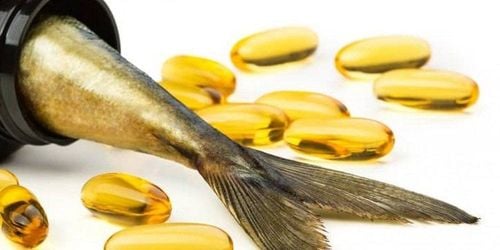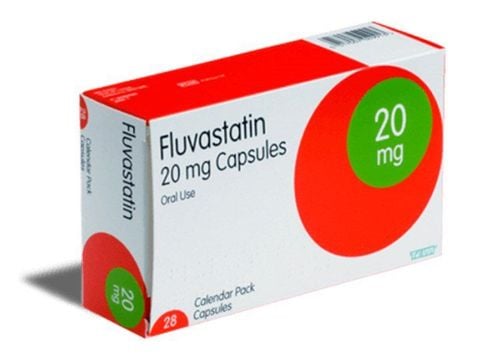This is an automatically translated article.
This article was written by Pharmacist Dinh Thi My Hanh - Faculty of Pharmacy - Vinmec Central Park International General Hospital.Omega-3 is a source of fatty acids that the body cannot synthesize on its own. This is a source of fatty acids found in fish oil and is necessary for many bodily functions. You should supplement with fish oil for your body, especially fish oil that comes from natural food sources.
1. What is special about fish oil?
Fish oil contains mainly two types of omega-3, known by their names docosahexaenoic acid (DHA) and eicosa-pentaenoic acid (EPA). Besides, fish oil also contains vitamin A and vitamin D.Food sources of DHA and EPA are fatty fish, such as salmon, mackerel, sardines and shellfish such as mussels, oysters, and crab. Some nuts and vegetable oils contain another omega-3 called alpha-linolenic acid (ALA) that the body can convert to DHA and EPA, such as flaxseeds, chia seeds, walnuts, pumpkin seeds and canola oil.
Eicosapentaenoic Acid (EPA): This is the best known omega-3 fatty acid, EPA helps the body synthesize substances involved in blood clotting and inflammation (prostate-3, thromboxane-2 and leukotriene-5) . Fish get EPA from the algae they eat. Docosahexaenoic acid (DHA): In humans, this omega-3 fatty acid is an important part of sperm, retina, part of eye and cortex, part of brain. DHA is present throughout the body, especially in the brain, eyes, and heart. Omega-3s are also present in breast milk. Omega-3 deficiencies have been linked to a wide range of health problems, including cardiovascular disease, some cancers, mood disorders, arthritis, and more. But that doesn't mean taking high doses of Omega-3s will help prevent disease and promote better health
Fish oil supplements are often touted to protect the heart, reduce inflammation, improve mental health and prolong life. Such advertisements are one reason why Americans spend more than $1 billion a year on fish oil supplements. And food companies also add it to milk, yogurt, cereal, chocolate, cookies, juice, and hundreds of other foods. However, some studies have concluded that fish oil and omega-3 fatty acids have health benefits, while others have suggested that it has little effect on health.

Dầu cá chứa những thành phần DHA và EPA cùng một số vi chất quan trọng khác với con người
Although the research results are contradictory, we should consider that adding fish and seafood to our daily meals is a healthy way to eat. If we think that the benefits of eating fish or seafood are purely due to their Omega-3 content, then taking fish oil capsules is also an alternative to eating fish. But it's more likely because the body needs the whole fish fat, vitamins, minerals and other supplements found in fish meat than just because the body needs EPA and DHA to stay healthy.
This is similar to when we use other foods. Taking a few vitamin supplements also cannot replace the need for the body to absorb many different nutrients in fruits, vegetables, whole grains ...
2. Some notes when using fish oil
When taken as recommended, fish oil supplements are generally considered safe. Omega-3 fatty acids are essential for health, so we need to try to get them from our diet. Fish oil supplements may be helpful if you have cardiovascular disease or autoimmune disorders or you can't eat fish or other seafood. Although fish oil is highly safe, taking too much fish oil can increase your risk of bleeding and may suppress your immune response. Taking high doses of fish oil supplements may increase the risk of stroke.

Axit béo omega-3 còn được tìm thấy ở một số loại thực phẩm như cá hồi
3. Side effects and drug interactions when taking fish oil
Some common side effects when supplementing with fish oil for the body such as:
Fishy taste, bad breath Indigestion, nausea Loose stools Rash. There are no studies on whether people with fish or shellfish allergies can safely take fish oil.
Possible drug interactions include:
Anticoagulants and antiplatelet drugs: fish oil supplements with these drugs may increase the risk of bleeding. Blood pressure medications: Taking fish oil supplements may slightly lower blood pressure, so taking fish oil with blood pressure medications may increase the blood pressure-lowering effect. Birth control pills: Some birth control pills may affect the triglyceride-lowering effects of fish oil Orlistat: Taking fish oil with this weight loss pill might decrease the absorption of fish oil's fatty acids. Consider taking this medicine and fish oil at least 2 hours apart. Vitamin E: Taking fish oil may decrease vitamin E absorption.

Người bệnh cần bổ sung thuốc theo đúng chỉ định của bác sĩ
To ensure the safest fish oil supplement for the body, it is best to consult your doctor and use fish oil under the advice of a doctor.
Customers who need medical examination and treatment at Vinmec International General Hospital can directly visit the nationwide system or contact the hotline HERE.
References: mayoclinic.org, health.harvard.edu, webmd.com, medicalnewstoday.com













